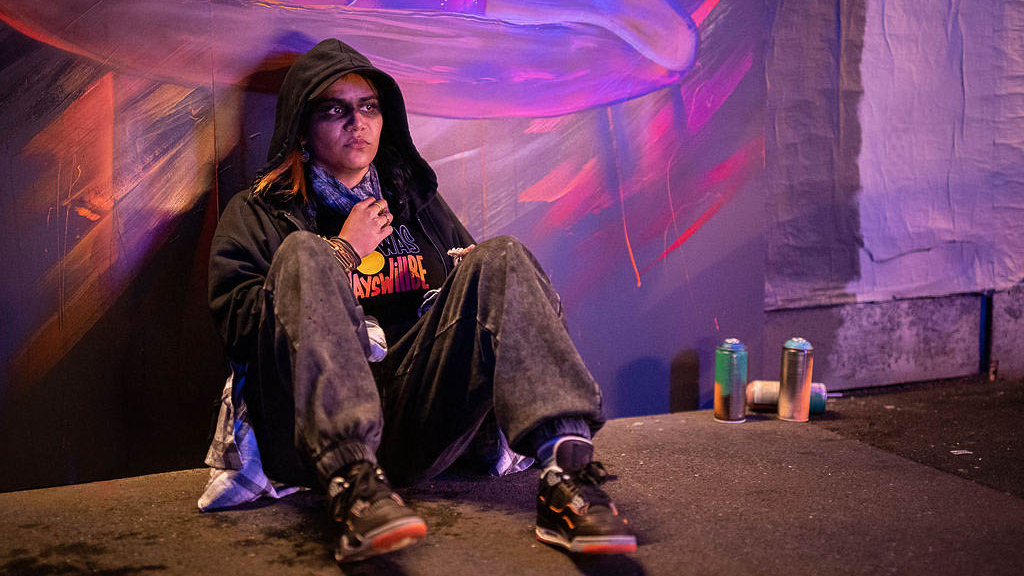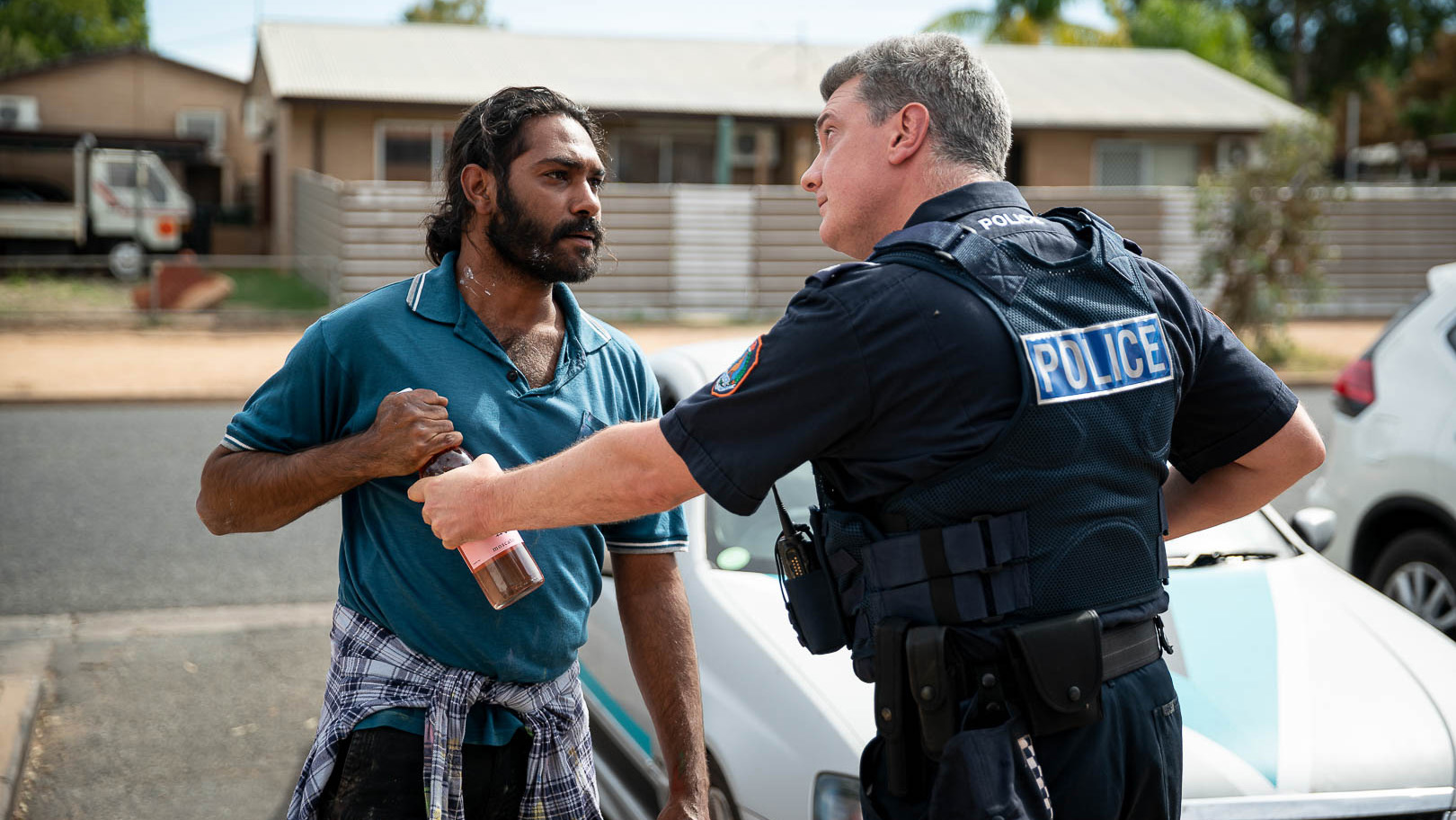A Film That Talks: An Interview with Beck Cole

Critics Campus 2022 participant Lily Rodgers speaks to director Beck Cole about collaboration, revelation and transformative storytelling as embodied in the dynamic anthology We Are Still Here.
“It was just from chatting to everyone, really.” This is how Australian director Beck Cole (Making Samson & Delilah, MIFF 2009) describes the creation of the new anthology film We Are Still Here, an expansive account of Indigenous resistance across thousands of years.
Indeed, the feature – which interweaves work by eight First Nations filmmaking teams from Australia, New Zealand and the South Pacific – carries with it the spirit of conversation. Ideas about kinship, grief, love and hope bounce off one another. From an animated vision of the ancient past all the way to a dystopian imagining of the tunnels beneath Auckland in the year 2064, the chapters see ideas extended, transformed and revealed in a new light.
A joint initiative between Screen Australia and the New Zealand Film Commission, We Are Still Here was initially conceived as a response to the 250th anniversary of James Cook’s arrival in the region. However, Cole says this thematic focus “fell to the wayside pretty quickly” as filmmakers shared diverse and celebratory narratives in an early wānanga (development workshop). “Everyone just started talking about stories of resilience [and] survival,” Cole tells me. “A whole heap of ideas were put forward.” Over the past three years, numerous workshops were held in both Australia and New Zealand with directors like Cole alongside Danielle MacLean, Dena Curtis and Tim Worrall. This collaborative methodology is borne out in the dynamic motion of the final film, which mirrors the cadence of a lively discussion.
While producing a project of this magnitude would be an impressive feat at any point in time, it is especially awe-inspiring in the midst of a global pandemic. Filmmakers had to hurry to shoot in the intervals between lockdowns. “We had two-and-a-half days to shoot. Was it two-and-a-half or three?” Cole muses over the phone. As anyone who’s made even a shoddy student film can tell you: that’s fast. But Cole, who directed the 2011 feature Here I Am as well as episodes of the TV series Black Comedy and Wentworth, was excited by the prospect of directing a short film.

We Are Still Here
Her chapter, ‘The Grog Shop’, emerged from a partnership with writer Samuel Nuggin-Paynter. At the first workshop in Kangaroo Valley, the pair submitted individual films. Upon reviewing the anthology as a whole, though, they agreed that it needed “something a bit lighter, and a bit of romance”. Both Cole and Nuggin-Paynter are from Alice Springs and got into a discussion about the blatant racism and discrimination of police officers targeting Aboriginal people out the front of bottle shops. They began envisioning a short that addressed this alongside a “funny and surprising” rom-com storyline. After a day of planning, it was clear they had the film they wanted to make. In Cole’s words, “The story came from just a kidding kind of chat that Sam and I had.”
Shooting on location in Alice Springs, cast and crew were immersed in the world of the film and the issues that it grapples with. “There were police officers there doing exactly what we were doing in our film,” Cole recounts. “[They were] quite confronted by the fact that we had the audacity to make a film about this. I was like, ‘Are you serious?’ They really think they can get away with no-one putting a camera or shining a torch on it.”
Beyond her role directing, Cole acted as the film’s montage director, working alongside editor Roland Gallois to assemble the eight parts into a cohesive whole. It was a difficult task that required balancing the need to honour everyone’s individual contributions while working towards a feature film. Despite the challenge, Cole says working with Gallois was an “absolute highlight”. Together, they developed the film’s unique structure, which cuts between scenes from different pieces based on narrative rise and fall, as opposed to playing short films in succession as anthologies traditionally do. “He started talking about this idea of having the exchange of energy in story,” recalls Cole, praising Gallois. It was a strategy designed both to keep the audience on the edge of their seats from one film to another, leaving them on a cliffhanger, and to allow deeper engagement with the recurring thematic concerns.
We Are Still Here is a film that talks, and one that encourages audiences to respond. “It’s a really spirited and warm film,” says Cole. “I think it will rattle some cages a little bit but, ultimately, people have told me they’ve come away from it feeling uplifted and hungry to know more, or to do more.”